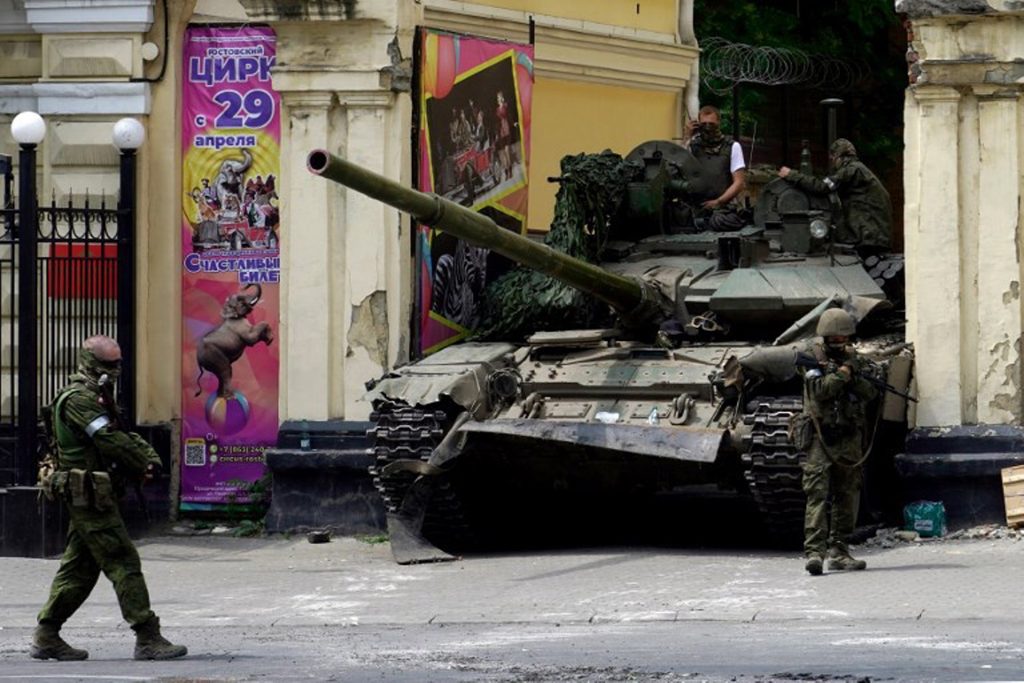Belgium's Foreign Affairs office updated its travel advice for Russia on Saturday, following the rebellion by the Wagner group. As the situation in Russia develops, travel to the region has been advised against.
“The security situation is very volatile at the moment and could worsen in the next few hours or days or spread to other regions or cities including the Moscow region,” the office announced. To anyone in the area, it recommends ensuring sufficient supply of water, food and other essentials.
For now, airports and borders remain open. All travel throughout the Russian Federation has long been advised against.
Situation in Russia
On Russian territory, travel restrictions have been introduced in the region of Kaluga, south of Moscow as the Wagner paramilitary group advances on the Russian capital.
"The operational headquarters has decided to temporarily introduce restrictions on motor transport on the region's roads located in the territories bordering the Kaluga border regions," said Governor Vladislav Chapcha. The regional capital of Kaluga is 180km from Moscow.
#Prigozhin's troops closing in on Moscow. #Putin seeks aid from #Kadyrov - Chechen forces sworn to his personal allegiance and heeds the call, moving to halt rebellions. They were ready to crush #WagnerGroup and defend Kremlin, but unfortunately caught in traffic jam en route… pic.twitter.com/Lh8TBwuW0u
— Valery Tsepkalo (@ValeryTsepkalo) June 24, 2023
Earlier on Saturday, an “anti-terrorist operation regime” was introduced in Moscow and its region by the National Anti-Terrorist Committee: “to prevent possible attacks, the anti-terrorist operation regime has been introduced in Moscow, the Moscow region”.
“All mass events (…) are cancelled for this reason” in Moscow, said the mayor of the Russian capital, Sergei Sobyanin.
Yet images circulating on social media networks suggest that the Russian National Guard deployed to prevent the mercenaries from progressing have quickly succumbed to the advancing forces.
International reaction
The G7 foreign ministers met on Saturday to "exchange views on the situation in Russia", EU diplomatic chief Josep Borrell announced. Berlin confirmed that its Foreign Minister "had just discussed the situation" with her G7 counterparts.
The president-elect of Latvia, Edgars Rinkevics, announced that his country had tightened security at its borders in the face of the ongoing mutiny in Russia, and was no longer allowing Russians into its territory.
"Latvia is closely following developments in Russia (...). Border security has been tightened," Rinkevics tweeted. "Latvia will not issue humanitarian or other visas." No details were given on the validity of visas already issued to enter Latvian territory.
In neighbouring Estonia, Prime Minister Kaja Kallas also said that "border security... has been strengthened". She urged Estonians not to travel to Russia.
📷Soldiers of Russian National Guard take positions near Moscow, possibly on its outskirts. #Russia #RussianCivilWar pic.twitter.com/bIGJ1HawaT
— MilitaryLand.net (@Militarylandnet) June 24, 2023
The rebellion by the Wagner group represents the most serious challenge yet to the long reign of Russian President Vladimir Putin and opens Russia's most serious security crisis since he came to power at the end of 1999.
It comes at a time when Kyiv is in the midst of a counter-offensive to reclaim its territories. Belarus on Saturday described the armed rebellion under way in Russia by the paramilitary group Wagner as a "gift" to the West, warning of a "catastrophe".

